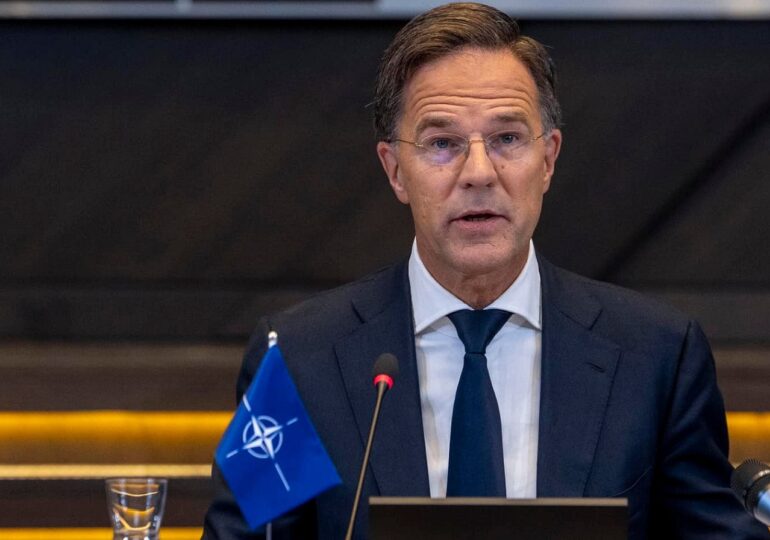NATO Secretary-General Mark Rutte told European parliamentarians on Monday that if member countries do not spend more on defense, in four or five years they will face an extreme choice.
The EU needs to rethink its spending priorities to increase defense budgets, Mark Rutte said on Monday in his first appearance in the European Parliament as NATO chief, according to Politico.
"We are safe now, but not in four or five years," he said, adding that if spending does not increase, Europeans should "take Russian lessons or flee to New Zealand," Rutte warned.
"I am deeply concerned about the security situation in Europe," he said. "We are not at war, but neither at peace... This means we need to invest more in defense and produce more capabilities. This cannot wait. We need to increase the resilience of our societies and critical infrastructure," the NATO chief stated.
"On average, European countries easily spend up to a quarter of their national income on pensions, health, and social security systems, and we only need a small part of this money to make defense much stronger," Rutte pleaded before the European parliamentarians.
Most EU countries are members of NATO, and in the past decade, the Alliance has asked them to spend at least 2% of GDP on defense. 24 out of the 32 NATO members now meet this target.
However, Donald Trump is now raising the bar. Last week, the US President-elect asked allies to spend 5% of GDP on defense – much more than even America, which spends 3.38%.
For many countries, reaching 2% has been very difficult, and 5% seems an unattainable threshold. However, Rutte has not backed down and has not brought good news to politicians hoping for a postponement, the publication writes.
The final NATO spending target could be around 3.6 or 3.7% of GDP, unless member countries manage better than expected through joint arms and equipment purchases, as well as in the innovation sector.
Even in such a scenario, defense budgets would still exceed 2%, Rutte warned.
Despite the growing dissatisfaction caused by Trump, who threatened Canada's independence and did not rule out using force to occupy the Panama Canal or take over Greenland, Rutte insisted that Europe is still tied to the United States for its security needs. He believes it was "an illusion" to think that Europe could defend itself alone.
This also means building Europe's own defense industry. Rutte applauded the EU's European Defense Industry Program, a €1.5 billion fund aimed at stimulating local arms production, calling the current arms production sector in Europe "too small, too fragmented, and too slow."
Rutte also said that the goal is to bring NATO and the EU closer together to counter a destabilization campaign coordinated by the Kremlin, as well as the proliferation of other threats, from Iran and China to cyber and nuclear attacks.
A key part of European security depends on strengthening cooperation between NATO and the EU. Although both institutions are based in Brussels, for many years they had a distant relationship. NATO focused on defense and transatlantic relations, while the EU dealt with issues such as trade, agriculture, and climate. However, Russia's invasion of Ukraine changed that.
NATO's dominance in all defense matters is rapidly changing - the EU has appointed its first defense commissioner, and the European Parliament has established a full defense committee.
"NATO and the European Union have a lot to do together," Rutte said, mentioning in particular the effort to help Ukraine defend itself against Russia.
T.D.

